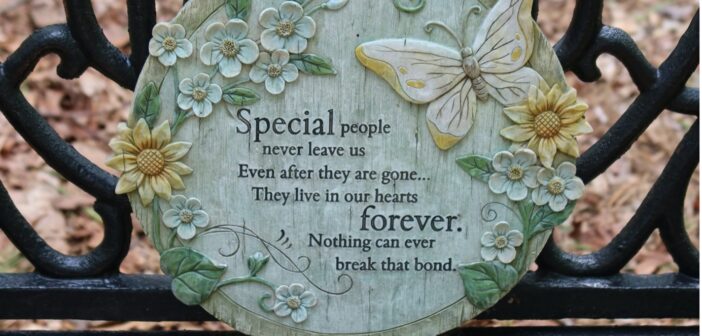Losing someone you love is one of life’s most profoundly challenging experiences. Grieving a lost loved one is a deeply personal and complex journey, and although there are shared feelings and stages, everyone experiences and deals with their grief differently.
You may have heard of the concept of the stages of grief, this framework was first developed by psychiatrist Elisabeth Kübler-Ross in her book “On Death and Dying” originally published in 1969.
The book outlined 5 main stages of grief; this has since been expanded by others to 7 stages of grief (more on that later) but the outlining of the stages remains the same concept. Explaining common emotions grieving people feel and how that grief evolves over time, whether a short or long period of time.
Whilst the stages are intended to help, are they real? Or do they oversimplify the personal process of mourning? In this article, we’ll look at each stage of grief, what they mean individually, and also discuss how you can get support whilst grieving.
Talk To A Funeral Director
One of the first places you can go to for support after a loss is the funeral director. They deal with people in mourning every day as part of their job and as such, any professional funeral directors worth your time will be able to lend a sympathetic ear.
They will have many contacts that they can refer you to for more in depth help, such as bereavement support groups or individual counsellors.
When working on the funeral plan for your loved one, they can help you make certain choices, such as flowers, hymns and/or music. Their understanding and compassionate advice can help you to navigate the loss.
What are the Five Stages of Grief?
The five stages as mentioned in the original book are:
- Denial
- Anger
- Bargaining
- Depression
- Acceptance
What About the 7 Stages?
In time, the original concept of stages of grief was expanded by various other authors, therapists, psychologists, etc., to try and better reflect how complex grief and the surrounding feelings are.
These 7 stages can vary, but generally they are:
- Shock and denial
- Pain and guilt
- Anger and bargaining
- Depression
- The upward turn
- Reconstruction and working through
- Acceptance and hope
As you can see, the 7-stage model combines some of the stages and adds 3 more hopeful stages for getting through the darkest part of grief. Though grief over a lost loved one may never truly leave us, these stages describe how feelings related to grief can change over time.
So Which is More Accurate, 5 or 7 Stages?
Neither 5 nor 7 stages can really sum up the complexity of grief. They merely provide a framework for understanding the emotional and psychological response to loss.
Everyone is different, and grief is not linear. You may not experience the stages in the order given, or skip some entirely, possibly even returning back to a stage later or multiple times.
Some may move through these stages quicker than others. Some may stay in one stage for a long time. So do not worry if your experience does not line up, the stages are merely a framework to help people understand.
Grief is about coping with loss, and though this can usually refer to the death of a loved one, it can be experienced during other events too, ones that challenge us or our sense of normalcy. Grief can also be experienced during life events such as divorce, losing a job/career you loved, or being diagnosed with a terminal illness.
Let’s take a more in depth look at each stage…
Denial
In the 7 stage version, this also includes shock, but they are very similar feelings. When initially hearing of a loss and beginning the grieving process, there may be feelings of denial, disbelief, and struggles to accept the loss is real.
Denial can act as a protective mechanism and give you more time to gradually come to terms with the overwhelming feelings from the loss.
Anger
Depending on circumstances surrounding the death of the loved one, you may feel anger. This anger could be towards yourself, others, or even the deceased. Anger is a natural response when we feel powerless, especially when a loss has occurred.
Bargaining
In the 7 stage version, this is combined with anger. Some may feel like bargaining with a higher power to relieve them of their grief.
Bargaining can include feelings such as guilt (also separated into “pain and guilt” in the 7 stage version), there may also be regret, thoughts of “what if…” and “if only…” or a desperate wish to turn back time and undo the loss.
Depression
Depression can naturally stem from grief, it can be a stage or a part of depression itself. Symptoms include overwhelming sadness, a sense of emptiness, withdrawing from others, changes in appetite and sleep.
Acceptance
In the 7 stage version acceptance is split into three more in depth stages, but it largely remains the same. These stages are “the upward turn”, “reconstruction and working through” and “acceptance and hope”.
Acceptance is a more positive part of the process, involving coming to terms with the reality of the loss and finding some sense of peace or resolution. This does not mean forgetting or moving on from the loss, it means integrating it into your life and learning to live with the pain.
Final Thoughts
Though these stages may help people to understand the common nature of grief, grief itself remains an individual process that can’t be categorised and varies from person to person.
There is no right or wrong way to grieve, some grieve privately whilst some may find comfort in shared feelings and thoughts.




